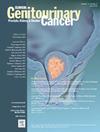Titrating Cabozantinib in Metastatic Renal Cell Carcinoma Patients Using Goldilocks Principle: A Real-World Evidence Study
IF 2.7
3区 医学
Q3 ONCOLOGY
引用次数: 0
Abstract
Introduction
The incidence of renal cell carcinoma (RCC) continues to rise worldwide, and this malignancy has demonstrated substantial sensitivity to both immunotherapies and targeted agents, particularly tyrosine kinase inhibitors (TKIs). Cabozantinib, a commonly utilized TKI, has shown promising efficacy across multiple clinical trials. This study aims to evaluate the real-world effectiveness of individualized cabozantinib dosing as a later-line treatment in patients with metastatic RCC (mRCC).
Patients and methods
Patients with mRCC treated at the Department of Oncology, Aarhus University Hospital, Denmark, were identified to estimate the median progression free survival (mPFS) and median overall survival (mOS) from treatment initiation. Best radiological response was evaluated using RECIST 1.1. Multivariable cox regression analyses were performed, including covariates such as brain metastasis, first-line treatment, line of treatment, ECOG Performance Status, IMDC risk group, nephrectomy status, and toxicity.
Results
A total of 179 patients were included, of which 139 patients received second-line (2L) treatment, and 40 patients received third+-line (3+L) treatment. We found a mPFS of 11.2 months for 2L treatment and 11.6 months for 3+L treatment. The mOS was 15.6 months for the 2L group and 17.1 months for the 3+L group. The mPFS and mOS in the IMDC favourable risk group were 28.5 and 52.1 months, respectively. No significant differences in mPFS or mOS were observed based on prior 1L treatment or the presence of brain metastases. The mOS and mPFS found in this study are comparable to, and in some cases exceed, those reported in other real-world cohorts. Interestingly, we found treatment-related toxicity to correlate significantly with an increased survival (mOS 66.8 vs. 32.8 months, P = .016) (mPFS 14,7 vs. 8,5 months, P = .013).
Conclusion
This study reinforces the existing data on effectiveness of cabozantinib as a later-line treatment for mRCC in real-world settings. We report 40 mg as the preferred landing zone. Furthermore we identify patients needing dose reductions due to toxicity as a subgroup carrying a significantly better prognosis. The results emphasize the importance of individual dosage for optimizing treatment outcomes and points out treatment-related toxicity as a surrogate marker for sufficient serum concentration of the active substance.
用金凤花原则在转移性肾细胞癌患者中滴定卡博赞替尼:一项真实世界的证据研究
肾细胞癌(RCC)的发病率在全球范围内持续上升,这种恶性肿瘤对免疫疗法和靶向药物,特别是酪氨酸激酶抑制剂(TKIs)都表现出相当大的敏感性。Cabozantinib是一种常用的TKI,在多个临床试验中显示出良好的疗效。本研究旨在评估个体化cabozantinib剂量作为转移性肾细胞癌(mRCC)患者后期治疗的实际有效性。在丹麦奥胡斯大学医院肿瘤科接受治疗的mRCC患者被确定,以估计从治疗开始的中位无进展生存期(mPFS)和中位总生存期(mOS)。采用RECIST 1.1评价最佳放射反应。进行多变量cox回归分析,包括脑转移、一线治疗、治疗线、ECOG表现状态、IMDC危险组、肾切除术状态和毒性等协变量。结果共纳入179例患者,其中二线(2L)治疗139例,三线+线(3+L)治疗40例。我们发现2L治疗的mPFS为11.2个月,3+L治疗的mPFS为11.6个月。2L组最小生存期为15.6个月,3+L组最小生存期为17.1个月。IMDC有利风险组的mPFS和mOS分别为28.5个月和52.1个月。基于先前的l治疗或脑转移的存在,未观察到mPFS或mOS的显著差异。本研究中发现的mOS和mPFS与其他现实世界队列的报告相当,在某些情况下甚至超过了这些报告。有趣的是,我们发现治疗相关的毒性与生存期的增加显著相关(最长生存期66.8个月vs. 32.8个月,P = 0.016)(最长生存期14,7个月vs. 8,5个月,P = 0.013)。结论:本研究强化了cabozantinib作为mRCC后期治疗在现实环境中的有效性的现有数据。我们报告40毫克为首选着陆区。此外,我们确定由于毒性需要减少剂量的患者作为预后明显较好的亚组。结果强调了个体剂量对优化治疗结果的重要性,并指出治疗相关毒性是有效物质足够血清浓度的替代标志。
本文章由计算机程序翻译,如有差异,请以英文原文为准。
求助全文
约1分钟内获得全文
求助全文
来源期刊

Clinical genitourinary cancer
医学-泌尿学与肾脏学
CiteScore
5.20
自引率
6.20%
发文量
201
审稿时长
54 days
期刊介绍:
Clinical Genitourinary Cancer is a peer-reviewed journal that publishes original articles describing various aspects of clinical and translational research in genitourinary cancers. Clinical Genitourinary Cancer is devoted to articles on detection, diagnosis, prevention, and treatment of genitourinary cancers. The main emphasis is on recent scientific developments in all areas related to genitourinary malignancies. Specific areas of interest include clinical research and mechanistic approaches; drug sensitivity and resistance; gene and antisense therapy; pathology, markers, and prognostic indicators; chemoprevention strategies; multimodality therapy; and integration of various approaches.
 求助内容:
求助内容: 应助结果提醒方式:
应助结果提醒方式:


